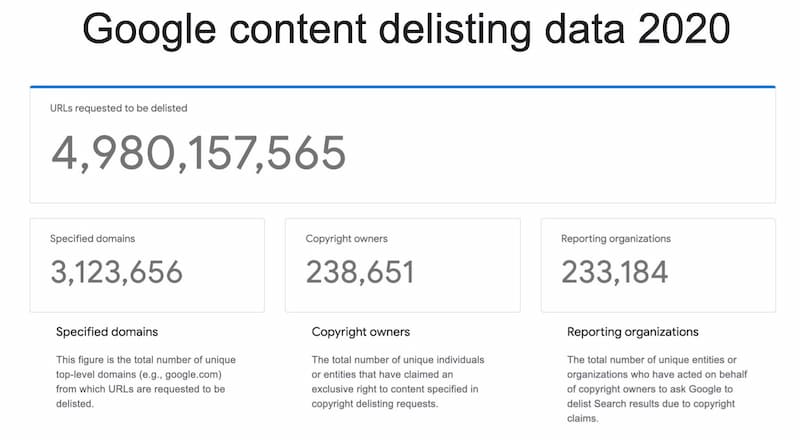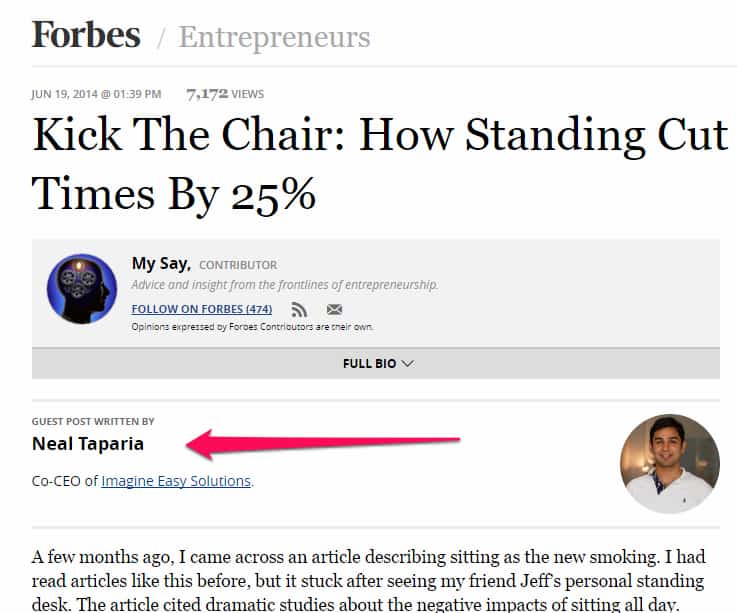Ways to Remove Negative Online Content from Search Results
Strategies to remove negative search results
Just about every company has something it’d like to remove from the Internet. What if you could make it happen?Removing negative content is not a quick and easy task, but it’s almost always worth trying (so long as the attempt to remove it doesn’t make things worse). Research shows that nearly 45% of people discover things online that change their minds about doing business with a company. If a potential customer reads even one negative review, they aren’t likely to click your link or purchase your product.
Removing negative reviews from Google
The best way to remove a problem review from Google reviews is to leverage Google’s Terms of Service (ToS) if you can. There are three places where you can flag a review for removal, they are:
- Your Google My Business account
- Google Maps
- Google Search
Reviews can be flagged by selecting “more” and then “Report review”.
Removal due to ToS violations
But before you do that you need to have a reason to flag it. Here is a list of reasons why Google may (or may not) remove a review due to a violation of their ToS:
- Spam and fake content
- Off-topic
- Illegal contentOffensive contentImpersonation
- Conflict of Interest
- Terrorist content
- Sexually explicit content
- Dangerous & Derogatory Content
- Off-topic
- Restricted content
Some of the above are objectively violations, like Dangerous Content. Others are more subjective such as off-topic content. In the end it’s up to Google Review moderators to decide. You can learn more about each of the above ToS removal reasons here.
Removal of negative reviews can be slow
In our experience, Google is glacially slow at removing flagged reviews, if they do at all. While Google reviews can be removed by flagging those that truly violate ToS, we’ve found that a supplemental review management program can work wonders.At Reputation X, we will almost always try to remove Google Reviews that are problematic, but we’ll also work to improve both Google Reviews and Ratings. Google Reviews tend to show up high in search results, above the fold. On a desktop computer, they’ll usually appear in the Knowledge Panel for a brand if one exists. We’ll execute a review management program to add more positive reviews, generate a higher star rating, and dilute or push down any negatives.That way, if Googles moderators decide to either ignore the flagged review, or deny it, the problem will be either reduced or eliminated via the review management program.
Beyond reviews
It’s not just reviews. Things like defamation of character, bad reviews, negative articles, or something else can all damage your reputation and in most cases ought to be removed from search results when possible. What Google’s first page says about you or your business is arguably more important for your online reputation than your website or your business card.So when disgruntled employees, angry customers, or competitors create negative content about your company, and it starts showing up in search results for branded keywords (ex, Acme Widgets), removing or countering it becomes a priority.There are a couple of strategies to counter negative search results.
- Try to get the negative content completely removed from search results.
- Try to get Google to remove the content from search results using a copyright infringement strategy.
- Push the negative search results down by creating and ranking positive content about your company
You can learn about the second strategy in detail here.In this post, however, we’ll focus on ways to remove negative content from search results.
How to remove personal or brand information from Google search
Getting the negative content about you or your company removed from Google search results is rarely simple.There are two ways to get content removed directly from a website
- Contact the author of the content, editor, or publisher with a request to remove or alter the content itself. Explain how it is portraying your business in the wrong light and causing damage to your reputation. We provide a script here.
- Ask the website owner to add the NO-INDEX tag to the page that has negative content. If this is done, Google will ignore this page and won’t show it in search results.
- Ask the website owner to remove any references to your name in the article. This will make it far less relevant for your branded search phrases, and thereby drop out of search results in most cases.
- Use copyright infringement as a basis for removal.
If the negative content is published on a multi-author site where individual writers control their own content, you can take a slightly different approach by targeting the author.
Get your no-obligation expert analysisUnderstand the issue, possible solutions, a cost estimate and more – before you decide. |
Target the author
If an article or blog post is attributed to an author, you can reach out to that person directly to ask if they will change the article’s content. Of course, if the author is out to get you then asking may just add fuel to the online fire.
How to ask an author to remove content
- Go to the negative post about your business, and click on the author’s name to see her or his profile. Most multi-author blogs list the author’s blog and social media profiles.
- Email the writer and politely let them know how the post is hurting your reputation and ask him to remove it.
Script to request web content removal
You can use a simple email script like this:
“Hey [author name],
I hope you’re doing well.
I’m [your name], [your designation] at [you company name].
I’m a regular reader of your articles at [blog name] and I’ve always found value in your posts. So a big thank you for that.
However, in one of your recent posts, you mentioned [state the inaccuracies in the post]. Not only is this incorrect, but it also gives our company a bad name.
[Article URL here]
I am kindly requesting you to edit your article and remove the inaccurate information that I’ve just highlighted. Alternatively you can remove the article completely, or even add a special tag to it that will cause Google to skip the article, but your readers can still read it. The tag is called a NoIndex tag and your webmaster can add it in seconds.
I’d be happy to discuss this in more detail if you have any questions.
I’d appreciate it if you can make this change ASAP, it’s really hurting us.
Thanks,
[Your name]
[Company Name] “
Don’t be overly aggressive in your first email and see how the author responds. You can, of course, change this email script according to your requirements.Note that some publications may not allow its contributors to edit or remove their posts after they’ve been published. In this case, you’ll need to target the editor or publisher.
Targeting the editor to remove online content
In case the author refuses to remove the negative post, doesn’t respond or tells you he can’t remove it, you’ll have to contact the editor of the online publication. This is like “going up the food chain.”You can usually find the editors’ contact information on the contact page. You can also approach them from the publication’s social media profiles. Again, politely explain your point and ask the editor to remove the content.
Target the publication
If the other two methods don’t work, you have the option to take legal action against the publication that has published negative, incorrect and defamatory content about your company.If you go ahead with this approach, you’ll need to have documented evidence to prove your case and that is hard to do. You might also need to seek professional legal assistance.Oftentimes the more sensible approach, however, is to engage an online reputation management company that can handle all these things on your behalf.In many cases, simply threatening the publication with legal action does the job. But it often makes the problem much worse. Reputation X has clients who have tried this on their own and experienced the Streisand Effect (you can read about that here). Essentially, the act of trying to get something removed using legal means draws attention to the problem, making it many times worse than it originally was.Note: many attorneys are our clients for this very reason.
Removal based on copyright infringement
Copyright infringement is different than defamation of character. If the negative search results about your company contain images or text content copied from your website or any other web properties, it can be reported to Google for copyright infringement.
Wrapping up
Negative search results can badly hurt your reputation and credibility, which is why you need to take immediate steps to get them removed. The steps we’ve shared in this post should help you get started. At the same time, you also need to create positive content so that you can rank for your branded keywords once the negative results are removed.
Negative content removal FAQs
What’s the fastest way to remove Google search results?
Contact the webmaster directly. In our experience, a webmaster will often not remove online content because, after all, they put it there in the first place for a reason – but sometimes they will. You will need to decide if contacting the webmaster will make things better or worse.
What types of things can be deleted from Google search results?
Google policy violations like child sexual abuse images. Certain financial information. Images of signatures. Confidential personal medical records. Content that violates the law. Copyright violations using a DMCA notice.
Why should I be concerned about negative online content?
Nearly 90% of all online experiences start from a search engine query. Negative and defamatory content in Google, Bing, and other search results can have a huge impact on how consumers perceive a brand or an individual. In fact, 45% of customers in the U.S. have changed their minds about doing business with a company because of negative search results.
About the author

Tags: Corporate Reputation, Online Reputation Repair, Reputation Management.

